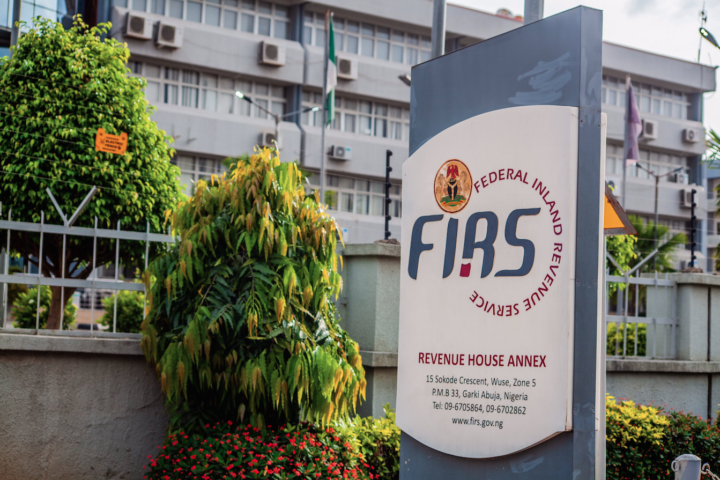Value-added tax is a consumption tax payable when goods are purchased and services are rendered. It is governed by the Value Added Tax Act NO 102, 1993 as amended to date.
VAT, as it is commonly known, is a multi-stage tax with the final incidence borne by the final consumer. All goods and services produced within or imported into the country are taxable except those specifically exempted by the VAT ACT. VAT is currently charged at 7.5 percent by virtue of the FINANCE ACT 2019.
Some goods and services such as non-oil exports are zero-rated, while all taxable persons are required to file VAT monthly returns not later than the 21st day following the month of transaction.
In the last three years (2018, 2019, and 2020), VAT contributed N1.108 trillion, N1.19 trillion and N1.5 trillion respectively, to the national coffers and it is shared among the three tiers of government in the ration of 15 percent to federal government, 50 percent to states and 35 percent to the local governments.
Advertisement
Since the introduction of VAT in Nigeria in 1993 and with its effective commencement in January 1994, the FIRS has been vested with the power of the VAT administration.
Its administration by that tax agency has been confronted with series of legal challenges and the most recent being the ruling of the federal high court in Port Harcourt, Rivers state, presided over by Justice Stephen Pam, on August 9, which restrained the FIRS from collecting VAT and personal income tax (PIT). The court stated that there was no constitutional basis for FIRS to demand and collect VAT, being that the constitutional powers and competence of the federal government was limited to the taxation of incomes, profits, and capital gains taxes which do not include VAT or any other species of sales tax or levy other than those specifically mentioned in items 58 and 59 of the exclusive legislative list of the constitution.
The suit instituted by Rivers state government was for a declaration that FIRS had no constitutional authority to enforce and administer taxes not expressly stipulated under items 58 and 59 of Part 1 of the Second Schedule of the 1999 Constitution.
Advertisement
It sought a declaration that FIRS administration of VAT or consumption tax of any kind, education tax, and any other forms of levies, not expressly provided for under the exclusive legislative list, is inconsistent with constitutional provisions, and thus null, void and ultra vires.
The suit further averred that the power of delegation conferred on the federal government under item 7 of Part II of the Second Schedule to the 1999 Constitution (concurrent legislative list) can only be exercised by assigning the duty to an authority of the state government and not any other person.
The 1999 Constitution of the Federal Republic of Nigeria confers the exclusive rights to the federal government to legislate on items 58 and 59 of part 1 of the 2nd schedule, while both the federal and states have rights on items on the concurrent list and the states on items on the residual list of the constitution.
Though VAT was not listed in either the exclusive, concurrent or residual list, it was an Act of the national assembly, established pursuant to items 67 & 68 of the exclusive legislative list which enables the national assembly to make laws incidental and supplementary to their lawmaking powers.
Advertisement
More so, Part 1 to the schedule of Taxes and Levies Act, clearly listed the various taxes to be collected by the federal, state and local government. The Act Listed VAT as one of the taxes to be collected by the federal government hence given credence to VAT being covered under the legislative list.
The argument against the legislative power of the national assembly to make laws with respect to VAT is simply a bold attempt at ignoring the incidental and supplementary powers of the National Assembly. Relying on items 7 – 10 of the concurrent legislative list is to give an unsustainable interpretation of legislative powers.
Prior to the introduction of VAT in Nigeria in 1993, some states in Nigeria administered sales tax and with the introduction of VAT, it replaced the sales tax effective from 1994. Since the introduction of VAT, it has been confronted with series of legal cases against it, its administration by FIRS and powers of states to enact similar laws such as sales tax or consumption tax also referred to as hotel occupancy and restaurant consumption tax or entertainment tax which Lagos state enacted in 2009. This was followed by other states like Ogun, Edo, Yobe, Kano and Rivers.
It is important to point out that the issues of VAT taxing rights have since been laid to rest with a number of classical cases decided in favour of FIRS. Noble among these cases is the case of AG Lagos State v Eko Hotels Ltd & Federal Board of Inland Revenue, where the supreme court held that where a law made by the federal government has covered the field of state law, the federal law prevails in the event of inconsistencies between both laws, thereby rendering the state law null, void to the extent of the inconsistency.
Advertisement
Also, in the decided case of the Registered Trustees of Hotel Owners and Managers Association Lagos v Attorney General of Lagos State and Federal Inland Revenue Services, the supreme court held that the VAT Act being an enactment of the national assembly has covered the field on matters relating to sales or consumption tax and prevails over any similar law of the state.
Similarly, In the decided case of A.G. Ogun State v Aberuagba, the Supreme Court struck down the Ogun state Sales tax because, by the constitution, the federal government had the exclusive competence to legislate over interstate trade and commerce.
Advertisement
All the above-cited cases were decided at the supreme court level which is the highest court in Nigeria.
Another case worthy of mention is the decided case of Nigerian Soft Drinks Ltd v A.G Lagos where the Courts held that the sales tax law in Lagos imposed on persons was valid, unlike the Ogun state sales tax which imposed taxes on goods brought into the state.
Advertisement
With the plethora of judgments in favor of the VAT Act by the supreme court, it has left some commentators to wonder if this was a case of forum shopping or judicial activism in favour of fiscal federalism.
It must be noted that while the judgment seeks to promote the principle of fiscal federalism, it also raises series of concerns on the likely impact on stakeholders in the area of multiplicity of taxes the judgment would throw up across all the states. Administering VAT at every state level would add to the myriad of taxes across the different levels of government, many of which are targeted at the same tax base. We need to also consider the impact on the ease of doing business in the country. The capacity of the tax administrators in terms of manpower, skill, knowledge, and competence is also of great concern. Above all, the impact it will have on small businesses.
Advertisement
Taking cognizance of all these myriads of negative impact taxpayers are unavoidably going to encounter, we must, therefore, exercise adequate caution on this VAT issue. It is hoped that the right to continue to administer VAT remains with FIRS as it would be in the best interest of all stakeholders.
The appeal for a stay of execution of the ruling by the FIRS was not granted by the presiding judge thereby heightening the uncertainty surrounding the situation, especially in Rivers state. It is hoped that the hearing at the court of appeal is expedited to avoid this national impasse. The public, especially tax professionals in other states of the federation, is advised on this forum to maintain the status quo on the payment of taxes. It is also hoped that all parties would leverage the ongoing constitutional review to address and fill the gaps and lacunae observed in the previous constitutions of the Nigerian federation.
In the meantime, Section 232 of the Nigerian constitution grants the supreme court to the exclusion of any other court original jurisdiction in any dispute between the federation and a state or between states.
Second Schedule Legislative Power Part II Paragraph D (8): Where an Act of NASS provides for the collection of tax or duty or the administration of any tax by the authority of a state in accordance with paragraph 7, it shall regulate the liability of persons to such tax or duty in such manner as to ensure that such tax or duty is not levied on the same person by more than one state.
Views expressed by contributors are strictly personal and not of TheCable.







